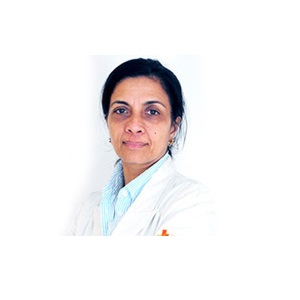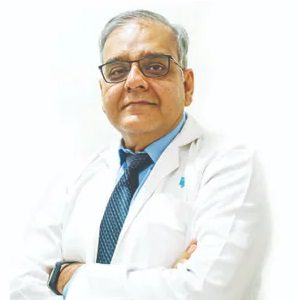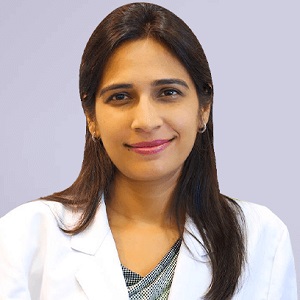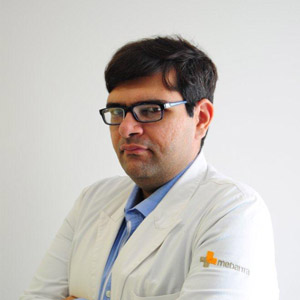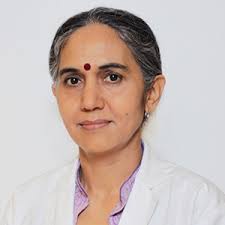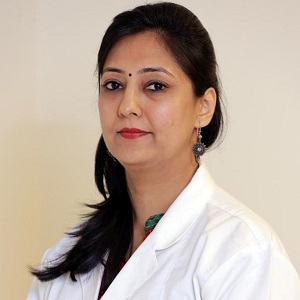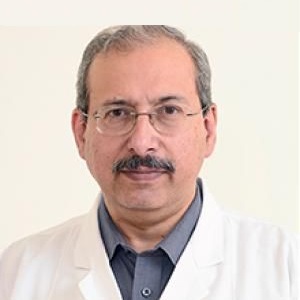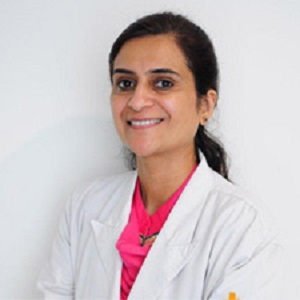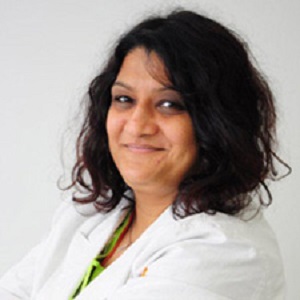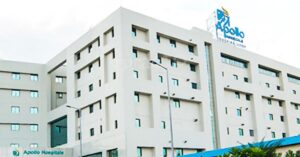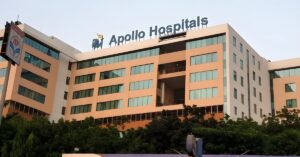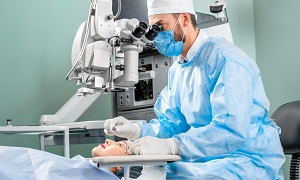Best Doctors in India for Phacoemulsification
- Ophthalmologist, Gurugram, India
- Over 35 years’ experience
- Medanta-The Medicity, Gurgaon
Profile Highlights:
- Dr. Careen Pakrasi is one of the best ophthalmologists in Gurugram. She practiced as a senior resident in Safdarjung Hospital from 1994 to 1996. Dr. Carreen Pakrasi is also a post-graduate Diploma holder in hospital management from IHFW.
- Dr. Careen Pakrasi has over three decades of rich professional experience in her field. Her area of interest lies in the treatment of Cataracts, Refractive Surgery, Glaucoma, and UVEA. She used to be the director of Pakrasi eye associates from 1996 to 2013.
- Top Ophthalmologist | Apollo Hospital, New Delhi, India
- 32+ Years Experience
- Indraprastha Apollo Hospital, New Delhi
Profile Highlights:
- Dr. Aniel Malhotra is a renowned eye surgeon in Delhi and has experience of nearly 32 years in the field.
- Since 1996 he has been working as a Senior Consultant at Indraprastha Apollo Hospital, New Delhi.
- Dr. Malhotra specializes in squint surgery, LASIK Surgery, and cataract surgery. Besides these, some significant services offered by the doctor are Cornea transplant, retinal detachment surgery, Diabetic Retinopathy, DALK, DSEK, and Cosmetic Eye Surgery.
- He got a fellowship under Padma Shree Dr. S.S. Badrinath from renowned eye hospital, Shankar Netralaya, Chennai.
- Ophthalmologist & Eye Surgeon, Gurugram, India
- Over 20 years’ experience
- Marengo Asia Hospital, Faridabad
Profile Highlights:
- Dr. Shibal Bhartiya is a distinguished eye surgeon and the Director of the Department of Ophthalmology at Marengo Asia Hospitals, Gurgaon.
- With over 20 years of experience in ophthalmology, Dr. Bhartiya is renowned for her compassionate approach to patient care, guided by unwavering ethical standards.
- Dr. Bhartiya’s academic journey includes training at prestigious institutions such as Maulana Azad Medical College and Dr. R P Centre, AIIMS, New Delhi, as well as the Department of Clinical Neurosciences at Hôpitaux Universitaires de Genève, Switzerland.
- Ophthalmologist, Gurugram, India
- Over 12 years’ experience
- Fortis Memorial Research Institute
Profile Highlights:
- Dr. Indrish Bhatia is a well-known ophthalmologist with a rich experience of 12 years across a host of leading medical institutions under his belt and currently works at FMRI as a Senior Consultant.
- Throughout his career, he has performed over 1000 vitreoretinal surgeries. He has also given over 6000 intravitreal injections. He also has a special interest in diabetic retinopathy.
- Top Ophthalmologist | Max Hospital, Saket, New Delhi, India
- 20+ Years Experience
- Max Super Specialty Hospital, Saket, New Delhi
Profile Highlights:
- Dr. Amanjot Singh has been practicing medicine for 20 years. Her specialization lies in cataract surgery by phacoemulsification and LASIK. She has been conducting training in Phacoemulsification at SGHS hospital in Sohana and at Centre for Sight, New Delhi prior to joining Max Healthcare.
- She has multiple specializations including refractive surgery, corneal surgery, eye muscle surgery, oculoplastic surgery, etc. Dr. Amanjot is a member of the Delhi Ophthalmic Society and the Bombay Ophthalmic Society.
- Top Ophthalmologist | Max Hospital, Saket, New Delhi, India
- 20+ Years Experience
- Max Super Specialty Hospital, Saket, New Delhi
Profile Highlights:
- Dr. Deepali Garg Mathur is a Consultant Ophthalmologist who has completed her DNB from the National Board of Examination & MNAMS from the National Board of Examination.
- Dr. Deepali Garg has expertise in Squint, Paediatric Ophthalmology, cataracts, Lasik, Lasers, Eye Surgery, Corneal, Phacoemulsification, Eyesight problems, Glaucoma, Dry Eyes, Eye Pain, etc.
- Top Ophthalmologist | Apollo Hospital, New Delhi, India
- 36+ Years Experience
- Indraprastha Apollo Hospital, New Delhi
Profile Highlights:
- With over 36 years of experience, Dr. Ranjana Mithal is currently practicing at Indraprastha Hospitals in Delhi. Her expertise lies in providing services for diabetic eye ailments, laser eye surgeries, glaucoma treatment as well as phaco-surgery.
- She has also gained additional specialization in LASIK & Neuro-ophthalmology.
- Dr. Ranjana Mithal is a member of several associations as well, such as the Glaucoma Society of India, and the Cataract & Refractive Society of India.
- Top Ophthalmologist | Max Hospital, Saket, New Delhi, India
- 29+ Years Experience
- Max Super Specialty Hospital, Saket, New Delhi
Profile Highlights:
- With over 29 years of experience, Dr. Tarun Kapur is one of the most renowned ophthalmologists/eye surgeons based in Delhi.
- Some of the services provided by Dr. Kapur include Avastin Injections, Glaucoma Evaluation / Treatment, Retina Examination, and keratoplasty.
- Dr. Tarun Kapur had also been awarded the National Talent Search Scholarship as well as Junior Science Talent Scholarship.
- Ophthalmologist, Gurugram, India
- Over 15 years’ experience
- Medanta-The Medicity, Gurgaon
Profile Highlights:
- Dr. Nidhi Verma is known as one of the best ophthalmologists in Gurugram.
- Her last overseas assignment was as a Consultant at Victoria Hospital Seychelles. Her main fields of interest are Medical Retina, Glaucoma, and Uvea.
- She has also been involved in teaching undergraduate as well as postgraduate students. At Medanta Dr. Nidhi Verma is mainly involved in Preventive Health check-ups and comprehensive Ophthalmology.
- Ophthalmologist, Gurugram, India
- Over 21 years’ experience
- Medanta-The Medicity, Gurgaon
Profile Highlights:
- Dr. Vishakha Kapoor is a renowned ophthalmologist at Medanta Hospital, Gurugram, having over 21 years of experience.
- She provides medical Treatment for Red Eyes, Treatment of Dark circles, Treatment of Eye Pain, Treatment of the Black eye, Eye Itching, Treatment of Conjunctivitis, Weak Eyes, Eye Infection, Tearing Eyes, and Eye Burning.
- Currently, she is also a member of the Delhi Ophthalmological Society.
Best Hospitals in India for Phacoemulsification
- City: New Delhi, India
Hospital Highlights:
- Equipped with 650 beds, BLK-Max Super Speciality Hospital is the largest stand-alone private sector hospital in Delhi.
- With over 1500 healthcare providers and 150 globally renowned super specialists, the hospital is one of Asia’s largest BMT Centres. The hospital is known for having some of the best cancer doctors in the country.
- The hospital is NABH and NABL accredited and was inaugurated by the first Prime Minister of India. Pt. Jawahar Lal Nehru.
- City: Hyderabad, India
Hospital Highlights:
- Located in the vibrant city of Hyderabad, Apollo Health City is a world-renowned medical facility that provides outstanding care and treatment to patients coming from different parts of the world.
- Founded in 1988, this 550-bed multispecialty hospital with 50 specialties and 12 Centres of Excellence continues to deliver outstanding outcomes for patients with the simplest to the most complicated medical conditions.
- Backed by the latest medical equipment and a dedicated team of professionals, the hospital provides comprehensive treatment across various specialties including, cardiology, critical care, neurosciences, cancer, orthopedics, gynecology, ENT, transplants, gastroenterology, etc.
- Apollo Health City is a cutting-edge healthcare facility that combines various facilities under one roof. These may include state-of-the-art physical medicine, rehabilitation, and wellness services with education, research, telemedicine, innovative medical devices, disease management programmes, and medical talents.
- The hospital is known for offering top-notch cancer treatment accompanied by cutting-edge facilities and technology.
- The hospital also offers a broad spectrum of cosmetic procedures that improve not just appearance but also comfort.
- In 2011, Apollo Health City was the recipient of the Asian Hospital Management Award (AHMA).
- In 2013, the Government of India recognized Apollo Health City as the top medical tourism destination in the country.
- City: Mumbai, India
Hospital Highlights:
- Kokilaben Dhirubhai Ambani Hospital, Named after the wife of Indian industrialist Dhirubhai Ambani, the founder of Reliance Industries, this is one of the top hospitals in Mumbai. This 750-bed multi-specialty hospital became operational in 2009. Known as one of India’s most advanced tertiary care facilities, the hospital is designed to raise India’s global standing as a healthcare hub, with an emphasis on excellence in clinical services.
- Kokilaben Dhirubhai Ambani Hospital uses Protocol and Care Pathway based treatment models to ensure the best outcomes for patients.
- The hospital represents a confluence of top-notch talent, cutting-edge technology, state-of-the-art infrastructure, and, most importantly commitment.
- The hospital also holds the accreditation of the NABH, NABL, CAP, and JCI.
- The hospital has been recognized as the No. 1 Multispecialty Hospital in Mumbai and the West Zone for the fifth year in a row in 2020 by The Week.
- City: Chennai, India
Hospital Highlights:
- Apollo Cancer Centre in Teynampet, Chennai is one of the best super speciality hospitals in India. It is the country’s first ISO-certified healthcare facility.
- Additionally, it is the first hospital in Chennai and the first oncology hospital in India to receive NABH accreditation.
- The hospital provides advanced tertiary care in oncology, orthopedics, neurology and neurosurgery, head and neck surgery, and reconstructive and plastic surgery.
- Additionally, it offers specialized healthcare of international standards with results comparable to those of the best hospitals in the world.
- It is outfitted with 300 beds, the newest and greatest technology, a large pool of highly qualified specialists, and a committed team of medical and paramedical professionals.
- It is one of the first few medical facilities in India to offer comprehensive cancer care. A team of skilled medical, surgical, and radiation oncologists makes up the Tumour Board, which is a component of the complete treatment planning system. After reviewing reported cases, the Board determines in concert with diagnostic specialists what course of action is best for each individual patient. The panel is further supported by dieticians, medical counselors, speech therapists, and other pertinent specialists.
- The hospital launched the first ExcelsiusGPS® Spine Robot in South India and has completed over 50 surgeries till date.
- It is also one of the few cancer hospitals in India to offer Cyber Knife therapy. Till now it has completed 1320 Cyber Knife therapies.
- The institution is also one of the few in India with the capacity to do transplants and find a prospective unrelated donor. The hospital has performed over 1000 BMTs till now.
- Furthermore, it has an exceptional milestone of performing exultant Micro vascular free tissue transfer and Aesthetic surgeries on more than 1000 patients with success.
- City: Chennai, India
Hospital Highlights:
- Apollo Hospitals, Chennai, is one of the best hospitals for heart care in India. Over the years, Apollo has expanded all over India, as a healthcare chain.
- India’s first ‘Only Pancreas’ transplant was performed in Apollo Hospital. The hospital is known for successfully performing Asia’s first en-bloc combined heart and liver transplant, and over the years, it has attained a remarkable achievement in the global healthcare space. Around 3-4 organ transplants are performed in the hospital per day.
- Equipped with over 500 beds, this hospital in Chennai was established in 1983 and since then has been among the most preferred hospital for patients from all over the world.
- The hospital holds accreditation of the NABH and JCI and is the first hospital in India to be ISO 9001 and ISO 14001 certified. It is also the first South Indian Hospital to receive subsequent reaccreditation from the JCI USA 4 times.
- City: Chennai, India
Hospital Highlights:
- Established in 1999, Gleneagles Global Hospital, Chennai, is one of the top healthcare facilities in Southern India. It is part of the Gleneagles Hospital Chain, which is the fourth largest healthcare chain in the country. The hospital specializes in multi-organ transplants of kidneys, liver, lungs, heart, etc.
- The hospital has an excellent infrastructure and state-of-the-art lab and equipment set-up. The hospital boasts cutting-edge technologies, a highly skilled team of doctors and surgeons, and trained support staff. Located in Perumbakam, Chennai, it is one of India’s premier health care destinations. The hospital has performed some of the most complex surgical and clinical procedures in India including multi-organ transplantations.
- The hospital’s lung transplantation program is one of the best in the country. The hospital is known for having performed India’s first single lung transplant and first minimal invasive lung transplant. It is also the only Indian hospital to be associated with King’s College Hospital, London, United Kingdom for liver transplantations.
- City: Hyderabad, India
Hospital Highlights:
- KIMS Hospital (a brand name of Krishna Institute of Medical Sciences) is one of the largest and best multi-speciality hospitals in Hyderabad. The hospital provides various treatments to an enormous number of patients.
- The hospital has a capacity of more than 3000 beds. KIMS Hospitals offers different healthcare services in more than 25 specialities and super specialities.
- The hospital is equipped with modern medical equipment and technology. It has robotic equipment to provide minimal invasive techniques for patients.
- The hospital is aimed at providing world-class healthcare facilities and services at an affordable cost for patients.
- The various specialities and departments of the hospital include neurosciences, gastroenterology & hepatology, robotic science, reproductive sciences, dental science, oncological sciences, organ transplantation, heart and lung transplantation and mother and child care.
- City: Kolkata, India
Hospital Highlights:
- Established in 2003, Apollo Gleneagles Hospitals is a 750-bed multispecialty tertiary care hospital situated in Kolkata.
- With 33 Centres of Excellence and more than 50 specialties, Apollo Gleneagles Hospitals, Kolkata is capable of handling all sorts of patients.
- This tertiary care hospital, which is a 100% subsidiary of Apollo Hospitals Enterprise Ltd., India, is regarded as one of Kolkata’s top hospitals.
- The facility is a complete blend of cutting-edge technology, state-of-the-art infrastructure, and genuine hospitality.
- Focusing on numerous specialties, the hospital provides all-inclusive medical treatments supported by cutting-edge technology and a staff of highly qualified medical specialists.
- Patients across the globe come to Apollo Gleneagles Hospitals Kolkata for their treatment. Moreover, international patients receive full attention and assistance for their treatment and are provided with a hassle free experience.
- Apollo Gleneagles Hospitals, Kolkata is the only hospital in Eastern India to hold the Joint Commission International (JCI) certificate.
- It is also the only hospital in Kolkata to hold the NABL accreditation in six different categories, which includes Clinical Biochemistry, Clinical Pathology, Hematology & Immunohematology, Microbiology & Serology, and Histopathology & Cytopathology.
- Furthermore, Apollo Gleneagles Hospitals, Kolkata is known for performing the first ever Reverse Shoulder Prosthesis Replacement in East India.
- City: Bengaluru, India
Hospital Highlights:
- Established in 1991, Manipal Hospital, Old Airport Road, Bangalore is the flagship facility of the Manipal Hospitals Group, which is one of the largest networks of Multispecialty Private Hospitals in India.
- The facility is well-known for its state-of-the-art technology, performance-driven, patient-centric, and evidence-based approach.
- The facilities offered at Manipal Hospital meet the highest international standards, allowing the hospital to attract a large number of national and international patients.
- Their expertise encompasses the diagnosis and treatment of a wide range of diseases in several specializations that address both simple as well as complex medical procedures.
- There are total 600 beds accessible in the hospital for the in-patients so they may heal while being closely watched after by the medical team. In addition, it has 144 critical care units, including NICUs, ICCUs, and ICUs. Apart from that, the hospital also offers 20 contemporary, modular state-of-the-art operating rooms with all the amenities needed.
- The hospital has several departments that are overseen by highly skilled, certified, and experienced medical experts.
- One of the best departments in the hospital is that of the Cancer department which is known for its advanced cancer diagnosis and treatment facilities such as Intracavitary Chemotherapy, Biological Therapy, HIPEC, PIPEC, Nuclear Medicine, Radiation Therapy, etc.
- It is one of the few hospitals in Bangalore that provides full range of pediatric services, including pediatric emergency services, pediatric gastroenterology, pediatric neurology, pediatric cardiology, pediatric orthopaedics, pediatric allergies, pediatric immunology, and infectious diseases.
- Furthermore, Manipal Hospital, Old Airport Road, Bangalore is also regarded as one of the best hospitals for bone and spine related disorders.
- City: Mumbai, India
Hospital Highlights:
- Established in 2016, Apollo Hospitals, Navi Mumbai is one of Maharashtra’s most advanced multispecialty hospital. This 500-bed hospital provides sophisticated treatments and integrated super specialty services under one roof.
- The hospital features a cutting-edge infrastructure that houses 13 state-of-the-art operating rooms, advanced laboratory and medical diagnostics, and 120 ultra-modern I.C.U. beds, including N.I.C.U. and P.I.C.U., monitored round the clock by critical care specialists.
- With 57 specialties and subspecialties, the hospital boasts a team of renowned medical specialists who offer accurate diagnosis and treatment with easy accessibility to their patients.
- Additionally, the hospital offers highly customized, individualized health check programs that are made to fit each person’s needs in terms of lifestyle.
- Apollo Hospitals, Navi Mumbai has been accredited by both the National Accreditation Board for Hospitals and Healthcare Providers (NABH) and the Joint Commission International (JCI).
- Apollo Hospitals Navi Mumbai has been awarded the “Best Practices-International Services Award” at the annual awards for service excellence and operations excellence.
Phacoemulsification
Phacoemulsification is generally the most common form of cataract surgery performed. Cataract surgery is meant to restore vision for people whose vision becomes cloudy from cataracts, a clouding that forms on the lens of the eyes.
As you age, cataracts are more likely to form. In the first stages, people generally notice slight cloudiness as it affects only a small part of the lens. However, as it grows, it can block more light which makes the vision even cloudier.
Purpose
People, who want to get their cataracts problem treated, are considered candidates for this procedure. Cataracts can not only inflict you with blurry vision but can also lead to other problems, which include turning your eyesight sensitive to the glare from lights. This can turn your daily-life activities into a huge problem.
As cataracts develop and worsen, you should notice these common symptoms:
- gradual onset of blurry vision
- frequent changes in the prescription for corrective lenses
- poor central vision
- near vision improvement to the point where you no longer need reading glasses
- increased glare from lights
- poor vision in sunlight
People can choose the surgery due to other problems, as cataracts can be a hindrance in the treatment of other problems such as age-related macular degeneration, diabetic eye problems, or any other common eye diseases.
You can have cataracts for years before the vision is impaired enough to warrant surgery. Generally, eye doctors suggest eyeglasses to help improve the vision temporarily, but as the lens grows cloudier, vision will deteriorate.
Cataracts grow faster in younger people or people having diabetics. Therefore, doctors are likely to recommend surgery more quickly in such cases. If the patient suffers from other eye ailments, such as macular degeneration, then it is more likely that surgery is going to be recommended more quickly. Surgery becomes necessary when symptoms worsen to a point that everyday activities become a problem.
Preparation
First, a complete ocular exam is performed, so that the severity of the cataract can be determined and what type of surgery the patient will receive. For some denser cataracts, an older method named extracapsular extraction is preferred.
After the diagnostic exams are performed, if cataracts are detected in both the eyes, they will be treated separately.
Before the surgery, the overall health of the patient is also considered. A physical examination might be recommended by surgeons before surgery.
Patients are generally advised not to eat or drink anything after midnight on the day of the surgery. Patients also need to disclose all medications so that they are able to determine if they need to be discontinued. The surgeon might also recommend you to begin using antibiotic drops before your surgery, as this can limit the chance of infection.
The surgery is performed on an outpatient basis, and therefore it is important for patients to arrange for someone to take them home after the procedure.
Procedure
During the procedure, the doctor might use local anesthesia, which is injected around the eye, or topical anesthesia, numbing drops that are inserted into the eye.
First, the surgeon will make a tiny incision at the edge of your cornea. Then he/she creates an opening in the membrane that surrounds your lens. A small ultrasonic probe is next inserted, breaking up the cloudy lens into small fragments. Then the instruments vibrate at ultrasonic speed to chop and dissolve the lens material into tiny fragments. Then the fragments are suctioned out of the capsule by an attachment on the probe tip.
After the lens particles are removed, an intraocular lens implant, which is known commonly as IOL, is implanted and positioned into the lens’s natural capsule. It is inserted through the small corneal incision through a hollowed-out tube. Once the lens is pushed through, it unfolds and is positioned in place.
The procedure is generally performed on an outpatient basis and doesn’t require a hospital stay.
After the procedure
The incision which is made in the cornea generally doesn’t require any stitches and is self-sealing. Generally, post-operative eye drops are prescribed and they usually consist of antibiotics, steroids as well as a non-steroidal anti-inflammatory medication. These drops help in reducing inflammation and preventing infection. The antibiotic can be discontinued in around 7-10 days.
Most patients are able to experience an improvement in their vision almost immediately after the procedure. Though for others it steadily improves over 4-5 weeks. The majority of patients are able to restore their visual acuity after the procedure, and many of them also no longer require the use of glasses or contact lenses.
Risks
Though complications are unlikely, they might occur. Patients might experience spontaneous bleeding from the wound as well as recurrent inflammation after the surgery.
For some people, flashing, floaters and double vision might also occur a few weeks after the surgery. If you experience them, you should notify your surgeon immediately of any symptoms. Some are easily treatable, while some such as floaters might be a sign of a retinal detachment. The retina can become detached by the surgery if there is a weakness in the retina at the time of the surgery. However, this complication may not occur for weeks and months.
Another potential complication is infection. The most serious infection is endophthalmitis, an infection of the eyeball, although it is quite uncommon.
Glaucoma is also one of the possible complications, and in some rare cases, blindness. It is best that you discuss all risks and possible complications with your surgeon before you make the decision to undergo the procedure.

